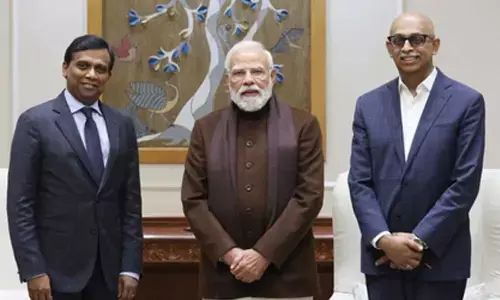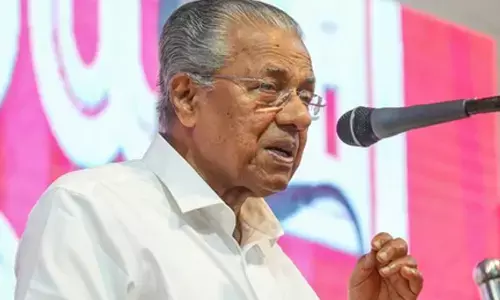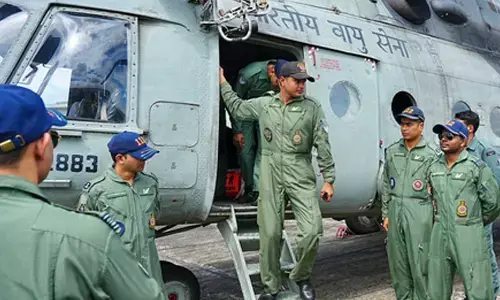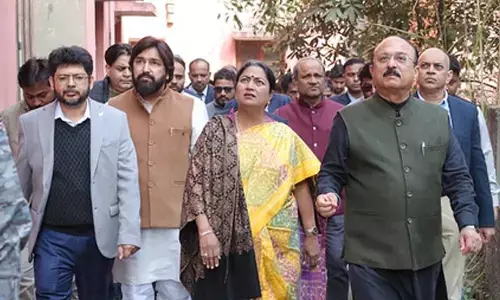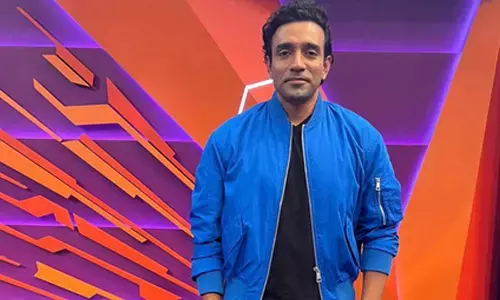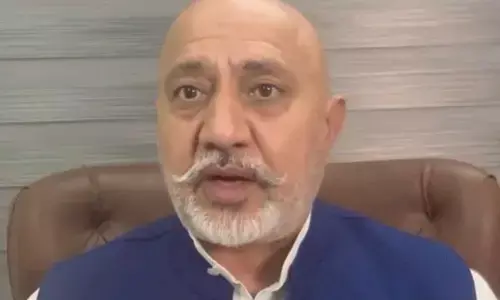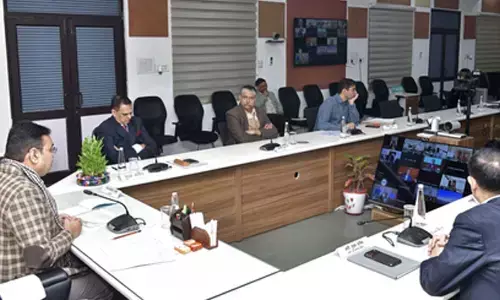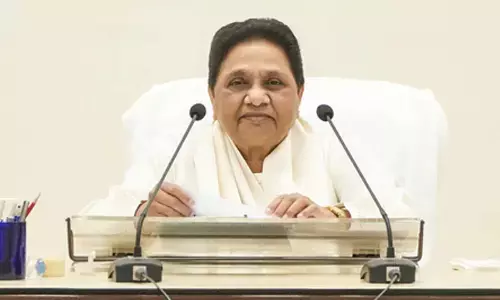Role Of Media & Hanging Of Culprits: We kill to oppose killing!
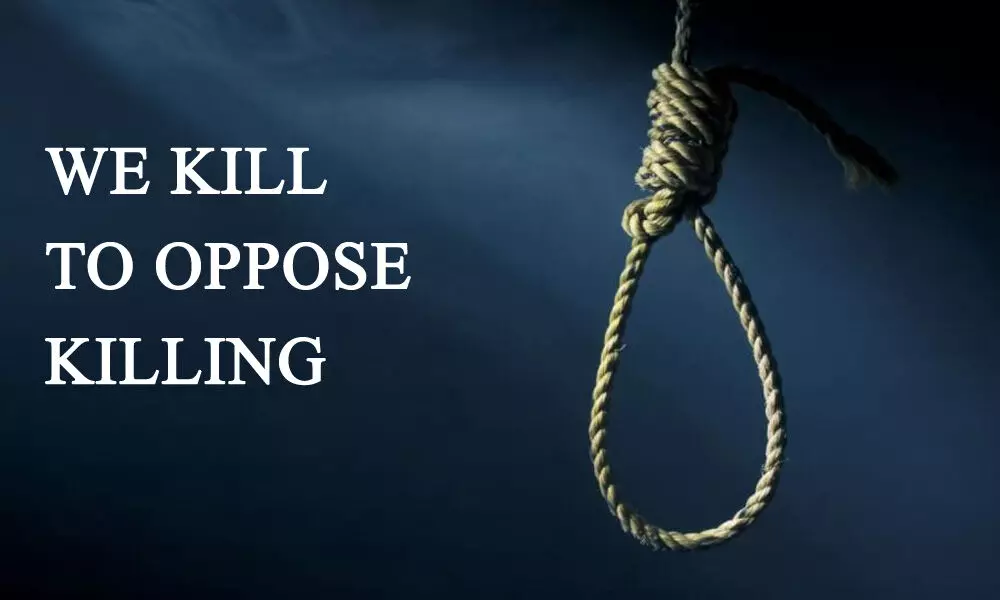
Whenever the date of execution of Nirbhaya convicts was deferred or stayed by the court, the civil society, including media, made a hue and cry, and some shouted from rooftop 'justice delayed'.
Whenever the date of execution of Nirbhaya convicts was deferred or stayed by the court, the civil society, including media, made a hue and cry, and some shouted from rooftop 'justice delayed'.
The defence lawyers of convicts were heavily trolled, and some wanted them to be executed along with the culprits. The question is: are we civilised enough in demanding hurried killing of convicts?
Without understanding the inhumanity of death penalty, seeking instant justice aka immediate killing of culprits is equally inhuman and 'criminal'. Media's clamour for quick retribution is unjustified.
At last all those four Nirbhaya culprits were hanged seven years after the crime. Each of the convicts exhausted legal means to survive till a few hours before the end. The courts were sitting late at night to dispose their pleas.
All the litigation ended at early hours of 20 March 2020. Undoubtedly, the crime was gruesome, rarest of rare and deserved no mercy.
This is the perfect example to says that the crime is a public wrong, where the society is the main victim, while victim suffers individually.
Nirbhaya posed a challenge to our civilisation, jurisprudence, prudence, governance etc. The mis-governance or bad administration in the national capital reflected in facilitation of such a crime.
The police or Road Transport Authorities failed to stop a moving unlicensed bus, which was used as a platform for such crime. The bloody incident is end of crime, resulting from a combination of causes and circumstances.
Whole incident tells the world that our women and men too are not safe. The incidence of rape and murder of infants, minors, mothers, sisters, wives and friends is happening every day despite huge publicity to death penalty awarded in this rape-murder case.
Executing the killers by hanging conveys 'you will be killed if you commit rape". Or "you were caught and found not to be a politician with connections with rulers or a rich and influential person, and hence killed".
Either join a ruling party or earn enough to hire a top lawyer to escape the liability, or at least, the gallows. Did we achieve such a repute?
This kind of trial and appeals consume years and decades, are criticised as frustrating the justice process. On the other hand, there are incidents where a gun-wielding policeman provided instant justice by killing the suspects of crime, for instance the killing of suspects of Disha within hours of the crime in Telangana.
It was so-called encounter where the policeman invoked his right of private defence (!) under Section 100 IPC and took the life of them supposed to have been guaranteed by Article 21 of the Indian Constitution. Best way to avoid delay is exercise of 'private defence' right, that results in quick delivery of justice.
Media and civil society are by and large happy with this quick justice. Neither prolonged investigation nor procrastinated prosecution, nor unending, fractured and fragmented examination nor cross examination nor re-examination of witnesses, if they do not turn away, nor lawyers mischief, nor multiple bail petitions from mofussil courts to Supreme Court, coming back again to square one at trial court, again escalating the matter to apex court, confirmation of sentence, if at all convicted, then mercy petitions, rejections, challenge to rejection, review, curative petition, filing another mercy petition with President, challenging its rejection or challenging the constitutionality of death sentence, or asking for trial de novo, so on and so forth by each accused separately at different points of time, unending exploration of procedural delay to extend the life and postpone capital sentence. The justification for this kind of instant killing justice is - justice delayed is justice denied.
This reflects the majority people's frustration, disappointment of victim's family, anger of women at the delay in hanging. They wish the accused would be decimated immediately. Most people feel killing next day would be more utilitarian.
We may have to call it a cinematic justice, where the villain perpetrating crimes for 90 minutes would die at the hands of trigger-happy hero in last ten minutes of show. Popcorn-Cola savvy spectators hail the hero. They stand in queue to offer flowers to authorised killer.
Why not kill the killers instantly? Macaulay's penal code, Stephen's Evidence law, and Ambedkar's Rule of Law —nothing works like a bullet in encounter. Hanging by State takes years, while encounter renders 'justice' next minute.
If that is the case, why not we appoint one encountering officer with a team to eliminate criminals in place of the courts and departments of prosecutors? Do we need judges from sub court to Supreme Court, small judge to the Chief Justice of India?
Can we accept this kind of justice where rapists are eliminated without any process established by law? Why this legal education, judicial academy, justice system, etc? We perhaps need only a President, Prime Minister, Home Minister along with encountering police officer and why do we need the Constitutional institutions?
No prudent democracy believes in such kind of quick justice. Determination of justice needs a reasonable time. Justice hurried means justice buried. There shall be an independent investigation without interference from ruling party and government.
Unlike Judge Loya, the trial judge should be allowed to survive, and same judge should continue hearing without malicious transfer by court administrators. If that results in conviction and sentencing that should be regarded as justice.
That happened in Nirbhaya case, which may be a dream for lakhs of pending cases. When the Nirbhaya culprits were convicted and jailed, justice was done in a reasonable time.
Media frequently asked for change in law to secure quick execution after death penalty. When does the execution complete, is it when culprit is jailed or released after suffering the term of sentence?
A life convict is punished the moment he is jailed. All other consequences are formal and necessary to remove possibility of innocent being killed.
Capital sentence demands most clinching evidence, which is rarely collected like in Nirbhaya case. In Nirbhaya, trial by media and actual trial was simultaneous. When media does not bother about thousands of rape cases around the country, most of the cases ended in acquittal for lack of evidence.
With prevailing corruption, increasing threats to witnesses, some pliable prosecutors, building pressures or inducements on judges, and many other factors, no conviction could be genuine. Hurried hanging in such cases would lead to serious injustice.
Where accused are influential politicians or rich businessmen, the hi-fi lawyers descend to defend and bitterly fight even for bail. If the accused are poor, or belonged to lower or backward strata, their fate is sealed, in the hands of encounter-loving policemen.
Especially in corrupt countries like India, the death penalty may result in killing less guilty or no guilty persons. One UP legislator who is facing the strong charge of rape, convicted in killing of her father in deliberate accident-look-like incident, attempted to take life of victim, allegedly persecuted their family, he continues to have support and patronage of ruling party.
Court has not found it to be a rare case or not. Where most of lawyers' act as fixers and brokers of witnesses, politicians influence, severe punishment means serious injustice.
Retribution is, not the sole but one of the purposes of the punishments. The media frequently attacked the 'delay' in execution using the voice bites of victim's family like parents of Nirbhaya, their lawyers and general public.
They scream in high pitch for demand for death. Real life is not run-of-the-mill cinema story where the villain is brutally killed in the last part by hero while all others watch like spectators.
Our jurisprudence mandates killing to say killing is wrong. In such an uncivilised system of graft and craft, can we boost of our prudence with frequent death penalties? Are we humane and beings?
People should look beyond retribution or wrecking vengeance. Informing convicts that they will be hanged on a specific day at a fixed time, will be starting point of suffering death penalty and that continues till physical hanging.
Death convict will die every minute until hanged, and actual hanging ends the suffering.
(The writer is former Central Information Commissioner and Professor at Bennett University)








